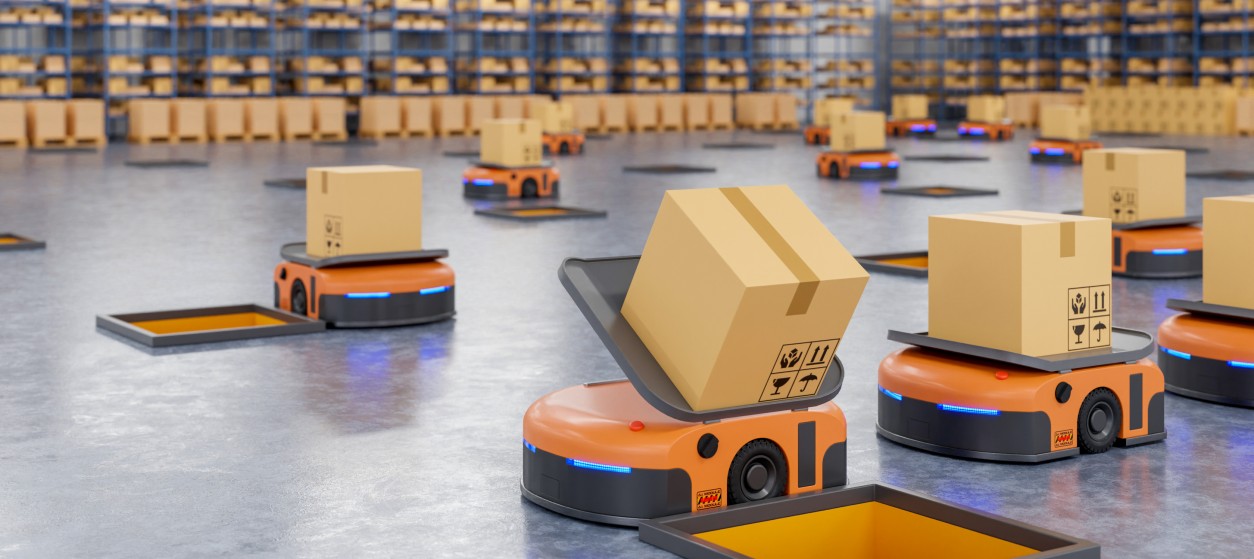One of the main goals of the digital transformation of modern enterprises is to increase the automation of their business processes. Leveraging advanced digital technologies such as Robotics Process Automation (RPA) and Artificial Intelligence (AI), enterprises can nowadays simplify and streamline complex business processes. In several cases they can also boost the quality of their processes and accelerate their delivery. In these ways, enterprises can realize significant cost savings, while freeing up human resources for more complex tasks that require human oversight and intelligence.
Once upon a time business process automation referred to the deployment of industrial automation systems such as SCADA (Supervisory Control and Data Acquisition) systems and PLCs (Programmable Logic Controllers), which enabled the automated control of industrial processes in settings like manufacturing shopfloors, energy plants and oil refineries. Such automation platforms leverage cyber-physical systems as mediators between field controllers and digital terminals. However, the scope of business process automation is no longer restricted to industrial hardware and related automation systems. Nowadays, enterprises are offered with opportunities to deploy software bots in order to automate, streamline and control processes that involve enterprise software systems such as Enterprise Resource Planning (ERP) and Customer Relationship Management (CRM) systems. Such bots are in several cases coined as RPA agents and can be used in many different enterprise settings beyond legacy industrial processes.
Introducing Robotics Process Automation
RPA processes leverage cutting edge digital technologies such as Machine Learning (ML) and AI to automate tedious and repetitive workflows in enterprise environments. In this direction, RPA software operates on well-structured and standardized inputs, which facilitate the streamlining and automation of complex business logic. The most typical RPA use cases involve transaction processing, data processing and manipulation, responses’ automation, as well as information exchange between different digital platforms. The simplest RPA scenarios involve construction and dispatch of automated responses to e-mails or other messages. Nevertheless, there are much more complex RPA use cases that entail the deployment of tens of bots that automate complex processes across ERP, CRM, Supply Chain Management (SCM) and knowledge management systems. Leveraging such complex workflows, enterprises can streamline enterprises processes and reduce costs. In several cases, RPA processes are combined with AI-based software agents (e.g., chatbots) to scale up processes (e.g., customer service) without any essential increase in the respective costs. Furthermore, modern RPA bots comprise ML algorithms that enable non-deterministic processing of inputs and boost process intelligence. Therefore, RPA is also a way to accelerate ML and AI adoption by modern enterprises. In most cases, the deployment of RPA processes provides a smooth path to AI deployments, as they enable enterprises to improve their AI knowhow and to experience tangible benefits of AI automation in practice.
Benefits of RPA
In recent years, CIO (Chief Information Officers) are increasingly turning to RPA towards one or more of the following benefits:
- Elevated productivity: RPA agents operate without human oversight. Moreover, they can operate on a 24×7 basis with the same level of performance. This provides a foundation for increased productivity, while offering opportunities for reallocating human resources to more sophisticated tasks.
- More streamlined and effective processes: RPA enabled processes do not suffer from the inevitable errors that occur when humans perform repetitive tasks. Moreover, streamlined processes reduce the number of manual interactions across different departments. This leads to less errors and increased efficiency.
- Increased accuracy: For certain types of tasks, RPA agents offer way more accuracy than the respective human mediated processes. As a prominent example, RPA programs are faster and much more efficient in the processing of large amounts of data in areas like finance, healthcare and industry.
- Cost Efficiency: RPA leads to the reduction of labor costs for integrating and executing digital workflows. Moreover, it provides increased scalability of digital processes. In this way, RPA projects lead to a positive and sometimes considerable ROI (Return on Investment) for their deployers.
- Improved digital interconnection and collaboration: Robotics processes enable the interconnection of diverse digital systems and applications. Hence, they boost interoperability across different enterprise departments, as well as across entire value chains of different organizations.
Guidelines of Successful Process Automation Deployments
To successfully deploy process automation enterprises must consider technology, organization, and management aspects simultaneously i.e., as part of an integrated and holistic approach. Here are some relevant guidelines:
- Process identification and business process reengineering: RPA deployments must be driven by business pains such as ineffective process processes that must be improved through automation. Along with the identification of problematic processes, enterprises must invest in the design of new RPA-enabled processes using a Business Process Reengineering (BPR) approach. RPA is not only a means for automating ineffective processes, but also a way to initiative and enforce BPR inside an organization.
- Employees’ awareness and training: In order to effectively adopt and fully leverage RPA processes and intelligent automation, companies must invest in raising awareness about automation inside their organization. Likewise, they should also train their employees on how to integrate and use RPA processes in conjunction with legacy “human in the loop” workflows. RPA awareness is an important complementary asset that can determine the success of an RPA project.
- Technology and consulting services selection: Enterprises must put emphasis on the selection of proper technology partners and consultants. The selected RPA software must offer interfaces to legacy enterprise systems, along with possibilities for processing data from these systems. Likewise, the selected consultants must have experience with the processes that must be improved via RPA automation technology.
- Benchmarking and evaluation: To demonstrate and prove the benefits of RPA there is a need for measuring and quantifying the improvements. In this direction, a KPI (Key Performance Indicators) framework must be specified, along with effective benchmarking processes. The latter will boost the continuous improvement of the RPA project.
The advent of AI and RPA processes provides unprecedented innovation and efficiency opportunities for companies that are willing to deploy and fully leverage automation process. Enterprises must become prepared to exploit these opportunities based on a disciplined consideration of related management, organizational and technology issues. In this context, the above-listed guidelines provide a starting point for developing an effective strategy for AI and RPA adoption.










